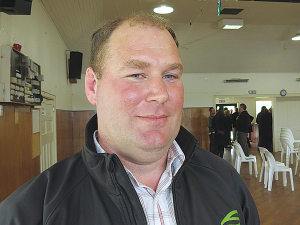OPINION: Tensions are rising over the amount of productive farmland being taken up by forestry.
As a general rule, Federated Farmers is not interested in telling anyone how they should use their land. But there is growing unease — even anger — about the amount of productive farmland being gobbled up by forestry, and the long-term impacts of that trend on rural communities.
All things being equal, owners will base their land use decisions on their family and business circumstances and what they feel will be profitable. However, three current factors may be skewing the balance as owners of farmland weigh up their future:
- Grants available under the Government’s One Billion Trees programme
- Carbon credit income as New Zealand looks to offset continued greenhouse gas emissions, and
- The relatively less stringent criteria overseas buyers must meet when investing in forestry vs farmland.
News media last month reported widespread dismay in Wairarapa over news that the 1050ha Hadleigh Station, described by the province’s Federated Farmers president William Beetham as “a fantastic sheep and beef property”, had been purchased by a firm that specialises in forestry investments.
Beetham pointed out that a sheep and beef farm like that would spend about $500 per hectare every year but a plantation forest, apart from initial planting and a bit of pruning, offers little employment or work flow into service towns.
Land turned into pine forests won’t be logged for 25-30 years. And let’s not even get into the arguments about environmental and road maintenance impacts.
School rolls suffer, as do community services and club memberships. In short, said Beetham, if too much of the Wairarapa hill country becomes forest, the surrounding district will be dotted with ghost towns.
Other farm to forestry conversions were reported to be happening in Pongaroa, Lagoon Hills and near Ngawi. And that’s just in Wairarapa/Tararua.
Changes to the Overseas Investment Office rules at the end of 2017 introduced a new special forestry test providing the “fastest and most straightforward pathway for overseas investors”. OIO checks are all about investment being “in the national interest” but does that mean we sacrifice regional interests in the process?
It may well be in the national interest for more marginal, erosion-prone land to be converted to growing trees but it’s highly debatable the same can be said when good, productive farmland is swallowed by plantation forestry.
Under its One Billion Trees programme, the Government has earmarked $240 million in landowner and partnership grants to help get more planting initiatives across the line. Let’s be honest, the economics of wood vs livestock will be more crucial as farmers weigh the long-term, but grants like that are akin to putting a finger on the scales.
We also have the pressing problem of climate change, and looming deadlines to meet our international commitments on that front. But as the Parliamentary Commissioner for the Environment, Simon Upton, argued in his comprehensive ‘Farms, forests and fossil fuels’ report, managing the long-term problem of emissions with a short-term ‘fix’ of sequestering carbon in trees is risky.
Carbon dioxide is indisputably the main culprit in global warming, and Upton argued that relying on sequestering this gas in trees merely puts off the urgency for fossil-fuel burning sectors, including transport, to invest in the necessary low- and no-emission technologies we’ll need long term. If we’re lucky we might meet our international accounting obligations by 2050, but it will be an accounting victory only, he said.
We may well need the sort of alternative landscape approach Upton called for but a large scale rush into plantation forestry may be a case of failing to see the wood for the trees.
• Andrew Hoggard is Federated Farmers climate change spokesman.


















